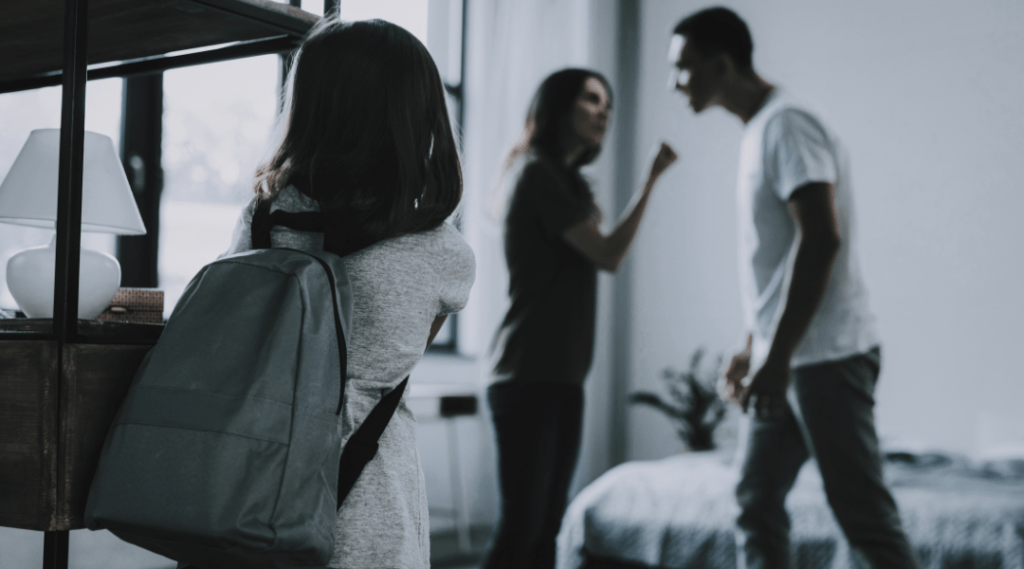What is anxiety?
All of us have felt anxious at some point in our lives. According to the National Institute of Health, US– “anxiety is a feeling of fear, dread, and uneasiness. It might cause you to sweat, feel restless and tense, and have a rapid heartbeat.”
It commonly occurs during public speaking events, stage performances, or any new situation with which our brain is not familiar. It is part of our evolution and has played a significant role in the past. It saved us from dangerous animals and situations. However, in the modern world, we face certain situations which might be scary but not life-threatening. To some people, speaking in front of a crowd might look scary, but it is not going to kill them. But, our system cannot differentiate between “new” and “new and dangerous”. So, it goes into fight, flight, or freeze mode. As it does that, we experience fear and uneasiness. Some get sweaty palms and racing heartbeats. And, some get anxious thoughts or beliefs that are hard to control.
Just like adults, it’s normal for some children to feel anxious when experiencing new situations like moving to a new school, being asked to speak in front of the class, or talking to someone new or authoritative.
“Anxiety manifests in physiological and psychological ways, including stomachaches, nail-biting, inflexibility, and difficulty with transitions.”- Liz Wallace
However, in some children, this feeling of anxiety lasts for a long time. It starts to affect their behavior and thoughts every day. Sometimes, their worry gets so strong that they begin to avoid school or social activities/ It interferes with the quality of their life and their academic performance. That’s the time when you should take the help of a professional.
Children are not very good at asking for direct help or communicating clearly when it comes to sharing these problems. So, as parents or carers, you must be alert to the symptoms so that early intervention can be done.
There are different kinds of anxiety that affect children. The five common ones are-
- General Anxiety Disorder
- Separation Anxiety
- Social Anxiety
- Panic disorders
- Phobia
Signs of Anxiety

Separation Anxiety Signs
1. The child is constantly afraid for their parent’s safety and well-being.
2. Complaints frequently about physical uneasiness like an upset stomach.
3. Have clingy behavior and need parents around them for the most part of the day. Might throw tantrums when away from the parents.
4. Cannot sleep away from home. And, if they have to, they will worry a lot, A LOT! And, will feel uncomfortable and uneasy.
5. Because they don’t want to be away from their parents, they resist or completely avoid going to school
6. They might have sleep problems and frequent nightmares.
Social Anxiety Signs
1. Experience fear when talking to people. They even sweat and stammer when forced to interact.
2. Have very less friends outside the family.
3. Constantly avoid social situations.
Symptoms of Specific Phobias
1. They show extreme fear regarding a certain thing for more than six months or longer. It can be fear of wind, storm, heights, darkness, animals, water, etc.
2. They experience physical and mental distress when exposed to a phobia. It can be an increased heart rate, sweating, shaking, a choking sensation, or an upset stomach.
Why anxiety disorder occurs?

There are several reasons which could lead to anxiety. Studies have shown that some kids are born with anxiety and are less able to cope with it.
Then, there are some kids who learn anxious behavior from someone around them. It can be their parents, siblings, or any other adult.
Lastly, stressful situations at home or school could lead to anxiety among kids. Some examples of stressful situations are-
The frequent conflict between parents
When they argue and shout, and are not able to resolve the issue, it affects the child at both physical and emotional levels. However, studies have shown that if parents engage in conflict and are able to resolve it respectfully, it has a positive impact on their mindset.
Frequent movement of cities or schools
Children who are constantly on move have problems creating deep attachments. Changes in the environment can confuse them and can undermine their trust. Exposure to new places and people can lead to anxiety.
Problems at school/ Bullying
Negative and intimidating experiences at school can scare children. If they feel they are constantly under threat, it will make them anxious. It can be because of other kids who bully them or it can be teachers who are rude and pick on them.
Exam-related stress
Many kids develop anxiety issues because they are too afraid to disappoint teachers or parents. In their mind, they associate exam marks with the quality of relationships they might share with their teachers or parents. Good marks mean a happy and loving relationship, and bad marks mean an unhappy and angry relationship.
Other reasons could be-
Death of a close family member or a friend
Getting illness or getting a severe injury in an accident
Being abused or neglected
What can you do?
Once you feel like your child might have one of the anxiety issues, what can you do next? First, don’t panic. Anxiety is a very common thing among both adults and children. In fact, it’s great to start working on it from a young age.
Another option is to opt for professional counseling. A counselor can work with your child in understanding their anxiety in detail. This will help them work on it together.
Lastly, you can seek professional help. It can include counseling, therapy, and medications. Some therapies that work in this scenario are Cognitive Behavioural Therapy(CBT) and Exposure Therapy.
Conclusion
As parents and guardians, it is crucial to be aware of various mental health issues. Along with it, creating a safe and healthy environment at home for your young ones should be at the top of your priority list. This helps kids feel safe which eventually reduces the chances of developing anxiety. And, even if they do develop it, they can freely share their concerns and problems with you at home.
So, create a safe and healthy space.
Listen to your kids.
Take professional help.
Sources: https://www.nhs.uk/mental-health/children-and-young-adults/advice-for-parents/anxiety-disorders-in-children/
https://www.webmd.com/children/signs-anxiety-children#091e9c5e82092526-2-5



